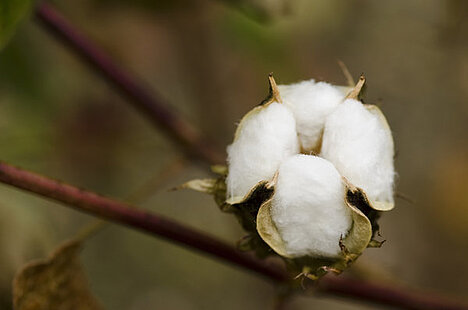Plant fiber

What is plant fiber?
Plant fiber is a collective term for various components of plants that cannot be broken down or can only be partially broken down by the digestive system. These include, for example, cellulose, hemicellulose, pectin or lignin. Plant fiber is found in all plant foods, but in different quantities and forms. For example, cereals, vegetables and fruit contain more plant fiber than meat or dairy products.
Plant fiber is often divided into two categories: soluble and insoluble plant fiber. Soluble plant fiber can bind water and forms a gel-like mass in the intestine, which slows down digestion and affects the absorption of nutrients. Insoluble plant fiber cannot bind water and accelerates intestinal transit by increasing stool volume and stimulating intestinal motility.
How much plant fiber does a dog need?
Dogs are carnivores by nature and therefore have a relatively short intestine designed for rapid digestion of protein and fat-rich foods. Unlike herbivorous animals, dogs do not have special organs or bacteria that help them break down plant fiber. Therefore, dogs generally need less plant fiber than other animal species.
The optimal amount of plant fiber for a dog depends on various factors, such as the dog's age, weight, health and activity level. There is no universal recommendation for the amount of plant fiber in dog food, but a guideline is around 2 to 5 percent. Too much or too little plant fiber can lead to digestive problems such as diarrhea, constipation or flatulence.
What are the benefits of plant fiber for dogs?
Plant fiber can have some positive effects on your dog's health when fed in the right quantity and quality. Here are some benefits of plant fiber for dogs:
- Plant fiber can increase your dog's feeling of satiety, helping to control their weight. This is especially important for overweight or neutered dogs that are prone to overeating.
- Plant fiber can promote your dog's intestinal health by supporting the intestinal flora and reducing the risk of intestinal inflammation. Plant fiber can also improve fecal consistency and regulate the frequency of defecation.
- Plant fibre can stabilize your dog's blood sugar levels by slowing down the absorption of glucose from food. This can be particularly beneficial for diabetic dogs.
- Plant fiber can lower your dog's cholesterol levels by reducing the absorption of cholesterol from food. This can reduce your dog's risk of cardiovascular disease.
What are the disadvantages of plant fiber for dogs?
Plant fiber is not always good for your dog and can also have some negative effects if fed in the wrong quantity or quality. Here are some disadvantages of plant fiber for dogs:
- Plant fiber can interfere with your dog's nutrient absorption by reducing the digestibility of food or preventing the binding of minerals. This can lead to deficiency symptoms or an imbalance in your dog's nutrient balance.
- Plant fiber can reduce your dog's energy supply by diluting the calorie content of the food or increasing the dog's energy expenditure. This can lead to weight loss or reduced performance of your dog.
- Plant fiber can trigger allergic reactions or intolerances in your dog if he is sensitive to certain plant ingredients. This can manifest itself in skin problems, itching, ear infections or gastrointestinal complaints.
How can you choose the right plant fiber for your dog?
To choose the right plant fiber for your dog, you should consider a few points:
- Pay attention to the quality of the plant fiber. Not all plant fibers are created equal and some may offer more benefits than others. For example, soluble plant fibers such as pectin or inulin are better for gut health than insoluble plant fibers such as cellulose or lignin.
- Pay attention to the source of the plant fiber. The source of the plant fiber can have an impact on its digestibility and nutritional value. For example, plant by-products such as bran or beet pulp are often inferior and less digestible than whole plant parts such as carrots or apples.
- Pay attention to the amount of plant fiber. The optimal amount of plant fiber for your dog depends on his individual needs. You should therefore adapt your dog's food to its stage of life, state of health and level of activity.
Plant fiber is an important component of dog nutrition that can have both advantages and disadvantages. To take advantage of the positive effects of plant fiber for your dog and avoid the negative ones, you should pay attention to the quality, source and quantity of plant fiber.
If you notice any signs of hypersensitivity or poisoning in your dog, you should see your vet immediately. We are not a substitute for a vet, but we try to be as accurate as possible. Every dog reacts differently and we recommend you get a second opinion or consult your vet if in doubt.
Stay healthy and take good care of your four-legged friend!😊